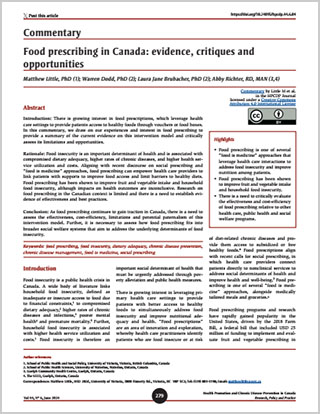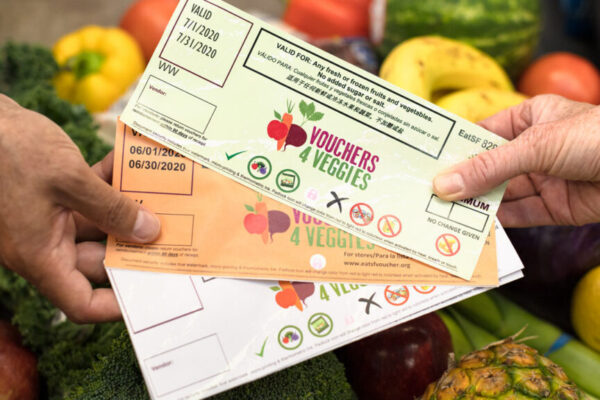6/19/2024 –
Abstract
Introduction: There is growing interest in food prescriptions, which leverage health care settings to provide patients access to healthy foods through vouchers or food boxes. In this commentary, we draw on our experiences and interest in food prescribing to provide a summary of the current evidence on this intervention model and critically assess its limitations and opportunities.
Rationale: Food insecurity is an important determinant of health and is associated with compromised dietary adequacy, higher rates of chronic diseases, and higher health service utilization and costs. Aligning with recent discourse on social prescribing and “food is medicine” approaches, food prescribing can empower health care providers to link patients with supports to improve food access and limit barriers to healthy diets. Food prescribing has been shown to improve fruit and vegetable intake and household food insecurity, although impacts on health outcomes are inconclusive. Research on food prescribing in the Canadian context is limited and there is a need to establish evidence of effectiveness and best practices.
Conclusion: As food prescribing continues to gain traction in Canada, there is a need to assess the effectiveness, cost-efficiency, limitations and potential paternalism of this intervention model. Further, it is necessary to assess how food prescribing fits into broader social welfare systems that aim to address the underlying determinants of food insecurity.




